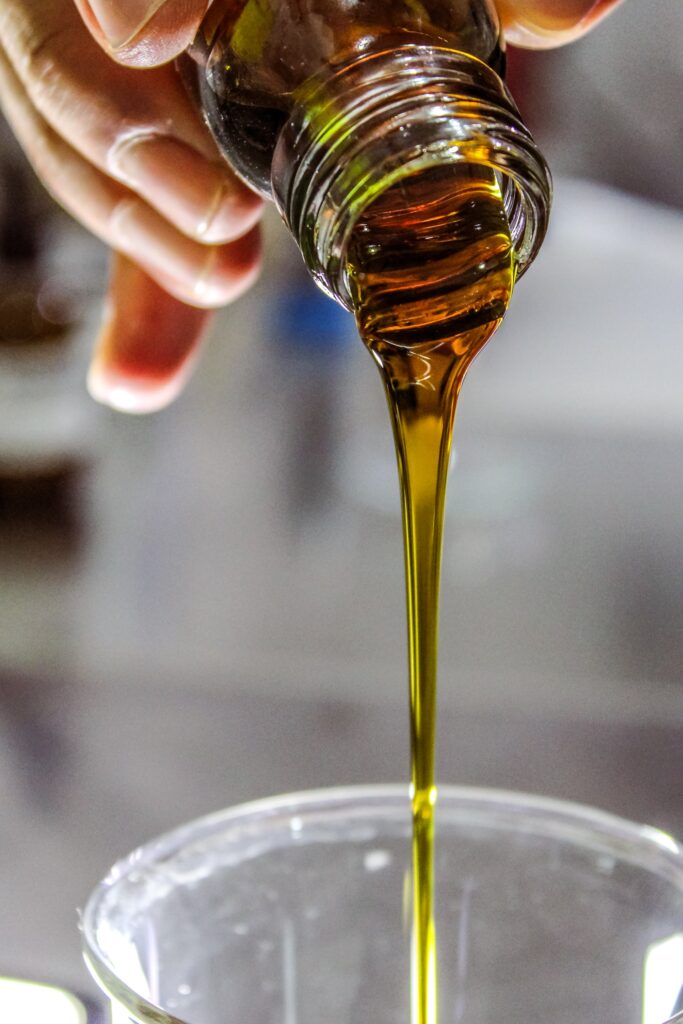Are you thinking of starting an olive oil business? If so, you’ve come to the right place. We’ve compiled a list of tips and strategies to help you get started and succeed in this growing market. Whether you’re a seasoned entrepreneur or a first-time business owner, there’s plenty of valuable information here to help you make informed decisions and achieve your goals.
What is Olive Oil?
Olive oil is a type of vegetable oil that is extracted from the fruits of the olive tree. It is commonly used in Mediterranean cuisine and has gained popularity worldwide due to its health benefits.
Health Benefits of Olive Oil
Olive oil is rich in monounsaturated fatty acids, which have been shown to lower LDL (bad) cholesterol levels and reduce the risk of heart disease. It also contains antioxidants, which help to protect the body from free radicals that can cause cellular damage.
Olive oil is also known to have anti-inflammatory properties, which can help to reduce the risk of chronic diseases such as cancer, diabetes, and Alzheimer’s disease. Additionally, it is a great source of vitamin E, which is essential for healthy skin and hair.
History of Olive Oil
Olive oil has been used for thousands of years, with evidence of its use dating back to ancient Greece and Rome. It was considered a symbol of wealth and prosperity and was used for medicinal purposes as well as in cooking.
Today, olive oil is still widely used in Mediterranean cuisine and has become a staple ingredient in many kitchens around the world.
Types of Olive Oil
There are several different types of olive oil, each with its own unique flavor and nutritional profile. These include:
- Extra virgin olive oil: This is the highest quality olive oil, with a fruity flavor and a low acidity level. It is made from the first cold pressing of olives and is rich in antioxidants and healthy fats.
- Virgin olive oil: This is also made from the first cold pressing of the olives but has a slightly higher acidity level than extra virgin olive oil.
- Olive oil: This is a blend of virgin olive oil and refined olive oil. It has a milder flavor and a higher smoke point, making it suitable for cooking at higher temperatures.
- Light olive oil: This is a highly refined olive oil that has a mild flavor and a high smoke point. It is suitable for cooking at high temperatures but has fewer health benefits than other types of olive oil.
How to Use Olive Oil
Olive oil can be used in a variety of ways in the kitchen. It is commonly used in salad dressings, marinades, and sauces, and can also be used for sautéing, roasting, and grilling.
When using olive oil for cooking, it is important to choose the right type of oil for the job. Extra virgin olive oil is best used for drizzling over salads or dipping bread, while olive oil or light olive oil is better suited for cooking at high temperatures.
Using Olive Oil in Cooking
Olive oil can be used in a variety of ways in the kitchen. It is commonly used in salad dressings, marinades, and sauces, and can also be used for sautéing, roasting, and grilling.
When using olive oil for cooking, it is important to choose the right type of oil for the job. Extra-virgin olive oil is best used for drizzling over salads or dipping bread, while olive oil or light olive oil is better suited for cooking at high temperatures.
Understanding the Olive Oil Market
Before you start any business, it’s important to do your market research. In the case of olive oil, there are several factors to consider. First, you need to understand the demand for olive oil in your local area and beyond. Olive oil consumption has been steadily increasing in many countries, due to its health benefits and versatility in cooking and other applications.
Second, you need to know the sources and quality of the olive oil you plan to sell. Depending on your location and budget, you may be able to produce your own olive oil or source it from local growers. Alternatively, you can import olive oil from other countries, such as Spain, Italy, Greece, or Turkey, which are among the top olive oil producers in the world.
Third, you need to be aware of the competition in the olive oil market. There are many other businesses that sell olive oil, both online and offline, and you need to differentiate yourself by offering unique value propositions, such as premium quality, organic, flavored, or customized olive oil products.
Setting Up Your Olive Oil Business
Once you have a clear understanding of the olive oil business market, you can start setting up your business. Here are some steps to follow:
1. Define Your Business Model
Before you register your business, you need to decide what type of business model you want to use. Will you be a sole proprietorship, a partnership, an LLC, or a corporation? Each type has its own advantages and disadvantages, depending on your goals, risk tolerance, tax situation, and legal requirements.
2. Register Your Business
Once you have chosen your business model, you need to register your business with the relevant authorities, such as the Secretary of State, the IRS, and the local zoning office. You also need to obtain any licenses or permits required by your state or municipality, such as a food service license or a sales tax permit.
3. Choose Your Location
Depending on your business model and target market, you need to choose a location that is convenient, accessible, and attractive to your customers. You can set up your olive oil business in a commercial space, a home-based kitchen, a farmers’ market, or an online store. Each option has its own pros and cons, depending on your budget, infrastructure, marketing, and scalability.
4. Source Your Olive Oil
As mentioned earlier, you need to source your olive oil from reliable and reputable suppliers. Depending on your preferences and budget, you can choose from different types of olive oil, such as extra virgin, virgin, pure, or pomace. You can also offer different flavors and blends, such as lemon, garlic, basil, or truffle, to cater to different tastes and preferences.
5. Create Your Brand
To stand out in the crowded olive oil market, you need to create a strong and memorable brand that reflects your values, personality, and mission. Your brand should include a catchy name, a unique logo, a compelling story, and a consistent visual and verbal identity. You can also use social media, email marketing, content marketing, and other digital channels to build your brand awareness and loyalty.
How Olive Oil Can Improve Your Health and Cooking

Olive oil is known for its high levels of monounsaturated fatty acids, which have been linked to a lower risk of heart disease and stroke. These fatty acids have also been shown to improve insulin sensitivity and reduce the risk of type 2 diabetes.
Additionally, olive oil contains antioxidants, which help to protect the body from free radicals that can cause cellular damage and increase the risk of chronic diseases. These antioxidants have been linked to a reduced risk of cancer, Alzheimer’s disease, and other inflammatory conditions.
Olive oil is also a rich source of vitamin E, which is important for maintaining healthy skin and hair.
How Small Businesses and Startups Can Leverage Olive Oil
Olive oil is a versatile ingredient that can be used in a variety of industries beyond just food and beverage. Small businesses and startups can leverage the unique properties of olive oil to enhance their products and services and stand out in the market. In this article, we’ll explore some innovative ways that small businesses and startups can use olive oil to their advantage.
Beauty and Skincare
Olive oil has been used for centuries in skincare and beauty products due to its moisturizing and antioxidant properties. Small businesses and startups in the beauty industry can use olive oil as a key ingredient in their products to offer customers a natural and effective alternative to traditional skincare products. Products such as facial cleansers, moisturizers, and hair care products can all benefit from the addition of olive oil.
Health and Wellness
Olive oil is well-known for its health benefits, including reducing the risk of heart disease, stroke, and certain types of cancer. Small businesses and startups in the health and wellness industry can leverage these benefits by incorporating olive oil into their products or services. For example, a small business that specializes in health supplements could create a product that combines olive oil with other natural ingredients to create a potent and effective supplement.
Home and Lifestyle
Olive oil can also be used in a variety of home and lifestyle products, such as candles, soaps, and cleaning products. Small businesses and startups in these industries can use olive oil as a natural and eco-friendly alternative to traditional ingredients. For example, a small business that creates handmade soaps could use olive oil as a key ingredient to providing customers with a natural and nourishing product.
Food and Beverage
Of course, olive oil is most commonly associated with food and beverage products. Small businesses and startups in the food industry can use high-quality olive oil as a way to stand out in a crowded market. For example, a small business that creates artisanal bread or pasta could use olive oil as a key ingredient to enhance the flavor and texture of its products.
10 Steps to Setting Up Your Own Olive Oil Business
Setting up an olive oil business can be a rewarding and profitable venture, but it requires careful planning and execution. In this article, we’ll outline 10 steps that can help you set up your own successful olive oil business.
1. Conduct Market Research
Before starting any business or olive oil business, it’s important to conduct market research to understand your target market and competition. Research the demand for olive oil in your area, as well as the preferences and buying habits of potential customers. Identify your competitors and analyze their pricing, marketing, and distribution strategies.
2. Develop a Business Plan
Develop a comprehensive business plan that outlines your goals, strategies, and financial projections. Include details on your product offerings, target market, distribution channels, and marketing plan. This will help you stay organized and focused as you launch and grow your business.
3. Secure Funding
Determine the start-up costs for your olive oil business and develop a plan to secure funding. This may include personal savings, loans, grants, or investors. Consider the long-term financial implications of each option and choose the one that best aligns with your goals and vision for your business.
4. Obtain Required Licenses and Permits
Research the licenses and permits required to operate an olive oil business in your area. This may include business licenses, food safety permits, and zoning permits. Ensure that you meet all legal requirements before launching your business.
5. Source High-Quality Olive Oil
Identify and source high-quality olive oil for your business. Research reputable suppliers and select those that meet your quality and pricing requirements. Consider the cost and logistics of shipping and storing your olive oil inventory.
6. Develop Your Brand Identity
Develop a unique brand identity that resonates with your target market. This includes your brand name, logo, packaging, and marketing materials. Consider the values and messaging that you want to communicate to your customers through your brand.
7. Develop Your Product Line
Develop a product line that meets the needs and preferences of your target market. Consider offering a variety of olive oils, such as flavored or infused oils, to appeal to different customer segments. Conduct taste tests and gather feedback from potential customers to refine your product line.
8. Establish Distribution Channels
Establish distribution channels for your olive oil business products. This may include online sales, retail partnerships, or direct sales at farmer’s markets or events. Consider the logistics of shipping and storing your products, as well as the costs and margins associated with each distribution channel.
9. Implement Marketing Strategies
Implement marketing strategies to promote your olive oil business and reach your target market. This may include social media advertising, email marketing, influencer partnerships, and events. Consider the most effective and cost-efficient marketing strategies for your business.
10. Build and Nurture Customer Relationships
Build and nurture relationships with your customers to create loyal brand advocates. Offer exceptional customer service, gather feedback, and respond to customer inquiries and concerns. Consider offering promotions and incentives to encourage repeat purchases and referrals.
Building a successful olive oil business store

Here are some key skills and experiences that can help:
1. Knowledge of the Olive Oil Business
Having a strong knowledge of the olive oil business is essential for building a successful olive oil store. This includes understanding the different types of olive oil, their flavor profiles, and the production processes. It also involves staying up-to-date with industry trends and developments.
2. Business Management Skills
Running a successful business requires a range of business management skills, including financial management, inventory management, and marketing. Being able to develop a solid business plan, manage finances, and implement effective marketing strategies are all important for building a thriving olive oil store.
3. Sales and Customer Service Skills
Strong sales and customer service skills are important for building relationships with customers and driving sales. This includes the ability to communicate effectively, understand customer needs and preferences, and provide exceptional service.
4. Culinary Experience
Having culinary experience can be an asset in building a successful olive oil store. This includes knowledge of cooking techniques, ingredients, and flavor profiles. It can also involve the ability to create and test recipes using olive oil, and to offer cooking classes or workshops.
5. Networking Skills
Building relationships with suppliers, industry professionals, and other businesses can help to grow a successful olive oil business store. Networking skills can involve attending industry events and conferences, participating in online forums and social media groups, and developing partnerships with other businesses.
6. Passion for Olive Oil
Finally, having a passion for olive oil can be an important factor in building a successful olive oil store. This involves a genuine interest in the product, its health benefits, and its culinary uses. Passion can also help to drive creativity, innovation, and a commitment to quality.
By developing these skills and experiences, you can increase your chances of building a successful olive oil store that meets the needs of your target market and differentiates itself from competitors in the industry.
Latest Trends in the Olive Oil Industry
Olive oil is a staple ingredient in many cuisines around the world. It is used in a wide variety of dishes, from salads to stir-fries, and is valued for its unique flavor and health benefits. In recent years, the olive oil industry has undergone significant changes and transformations, driven by various trends that are shaping the market. Here are some of the latest trends in the olive oil industry that you should know about:
The Rise of Artisanal and Premium Olive Oils
As consumers become more health-conscious and discerning about the quality of their food, there has been a growing demand for artisanal and premium olive oils. These oils are often made from carefully selected and processed olives and are marketed as high-end products that offer unique flavors and aromas. In addition, many artisanal and premium olive oils are certified organic, non-GMO, and/or sustainably produced, which appeals to consumers who are looking for healthy and environmentally friendly options.
The Emergence of New Olive Oil Varieties
Traditionally, the olive oil business industry has been dominated by a few key varieties, such as Picual and Arbequina. However, in recent years, there has been a growing interest in new and exotic olive oil varieties from different parts of the world. For example, some producers are now making olive oil from rare and indigenous varieties, such as Coratina from Italy or Koroneiki from Greece. These new varieties offer unique and distinctive flavors and help diversify the market.
Increasing Popularity of Olive Oil-Based Products
In addition to cooking oils, there has been a surge in the popularity of olive oil-based products, such as cosmetics, soaps, and candles. These products are often marketed as natural and organic alternatives to conventional products and are valued for their moisturizing and antioxidant properties. Some companies are also experimenting with new uses for olive oil, such as using it as a base for perfumes or as a lubricant for machinery.
Sustainability and Transparency
As consumers become more aware of the environmental impact of their purchases, there has been a growing demand for sustainable and transparent production methods in the olive oil industry. Many consumers are looking for products that are produced using organic and environmentally friendly methods, and that comes with clear and honest labeling. In response, many producers are now implementing sustainable farming practices, reducing their carbon footprint, and providing detailed information about their production methods and sourcing.
The Digitalization of the Olive Oil Industry
Finally, the olive oil industry is undergoing a digital transformation, as more and more producers are using technology to improve their production methods, marketing, and distribution. For example, some companies are using sensors and data analytics to monitor and optimize their olive groves, while others are using e-commerce platforms and social media to reach new customers and markets. This digitalization is expected to continue in the coming years, as the industry becomes more competitive and globalized.
Qualities to Look for in High-Quality Olive Oil

Extra Virgin Olive Oil Extra virgin olive oil (EVOO) is the highest quality olive oil you can buy. It is extracted from the first cold-pressing of the olives and contains no more than 0.8% acidity. When looking for high-quality olive oil, make sure to choose extra virgin olive oil. Avoid buying blends or lower-quality oils that may have been mixed with other oils or have been processed with chemicals.
Freshness
Olive oil is at its best when it’s fresh. As soon as it’s harvested, the quality begins to degrade, so it’s crucial to use olive oil within a year of production. Look for olive oil with a harvest date on the label to ensure its freshness.
Source
The quality of olive oil is heavily influenced by where the olives were grown and the conditions under which they were harvested. Look for olive oil from reputable sources, ideally from a single estate or grove, where the olives are hand-picked and processed quickly after harvest. This will ensure that the oil retains its natural flavors and nutrients.
Taste
High-quality olive oil should have a complex and well-balanced taste. It should be fruity, with a slightly bitter and peppery aftertaste. Avoid olive oil that tastes rancid, metallic, or overly greasy.
Acidity
The acidity level of olive oil is an indicator of its quality. Extra virgin olive oil should have an acidity level of no more than 0.8%. This acidity level ensures that the oil is not rancid and has not been processed with chemicals.
Packaging
The packaging of olive oil can affect its quality. Olive oil should be stored in dark, glass bottles, as exposure to light can cause the oil to degrade. Avoid olive oil in plastic bottles or containers, as the oil can absorb plastic flavors.
Certification and Awards
Certification and awards can be an indication of high-quality olive oil. Look for olive oil that has been certified by a reputable organization, such as the International Olive Council (IOC). Additionally, look for olive oil that has won awards in international competitions, as this can be a sign of exceptional quality.
Summary
- In summary, starting an olive oil business requires careful planning and consideration of various factors, including selecting a business model, choosing a location, determining the product line, and developing a marketing strategy.
- It is important to have a strong understanding of the industry, including the production processes, quality standards, and trends.
- Building a successful olive oil business store also requires a combination of skills and experiences, such as knowledge of olive oil, business management skills, sales, and customer service skills, culinary experience, networking skills, and a passion for olive oil.
- By developing these skills and experiences, and staying up-to-date with industry trends, you can increase your chances of building a thriving olive oil business that meets the needs of your customers and differentiates itself from competitors.





More Stories
A Beginner’s Guide to Project Valvrein
Unleashing the Power of grenazi
How to Use Fintech Zoom Ethereum to Your Advantage